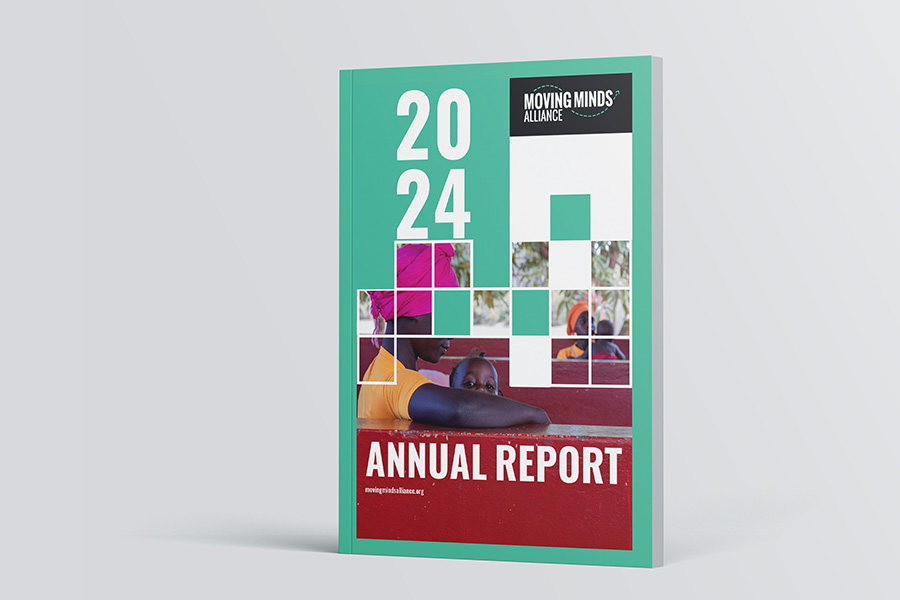We Communicate For Happy Children
 “Moving Minds Alliance” Publishes 2024 Annual Report
“Moving Minds Alliance” Publishes 2024 Annual Report 
7July 2025
The Moving Minds Alliance (MMA) published its 2024 annual report at what its co-chairs describe as a deeply unsettling time. This period is marked by rising global conflicts, increasing displacement, worsening political instability, and major international aid cuts. As noted by MMA’s director, the global economic and political landscape has changed significantly since the publication of MMA’s last annual review.
The report highlights MMA’s achievements, work, lessons learned, and future strategies. During 2024, MMA focused on strengthening its internal governance and operational capacities, expanding its Steering Committee, establishing an Expert Advisory Group, and enhancing internal communications and knowledge management. It deepened its research efforts through the Research Forum and Fellowship Program, supporting emerging researchers to generate evidence on early childhood development in emergencies (ECDiE). These initiatives aimed to build a stronger, more inclusive alliance able to deliver impactful advocacy and support for young children and families in crises.
MMA advanced global advocacy through dynamic working groups targeting donor engagement, innovative finance, localization, humanitarian coordination, and global events. The Alliance strengthened member engagement, increased local participation, and contributed to major international advocacy spaces, while leading collaborative responses to urgent crises, notably in Gaza. A key achievement was the adoption of more localized approaches, amplifying the voices of crisis-affected communities and supporting more equitable humanitarian systems.
The Annual Report also introduced MMA’s 2025-2030 Strategy, which focuses on three strategic priorities: growing a diverse community of ECDiE advocates, accelerating innovation in crisis response, and generating and promoting evidence and learning. This new strategy marks a significant shift towards systemic change, prioritizing locally-led responses and advocating for equitable distribution of resources and power to better meet the needs of young children in a rapidly evolving global context.
You may access the full report here.
